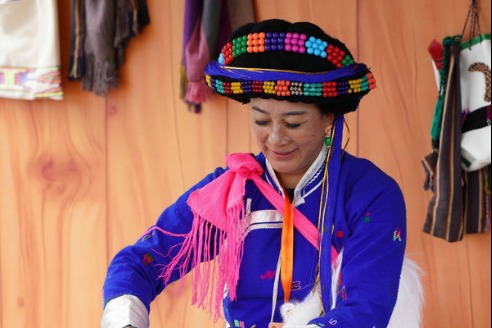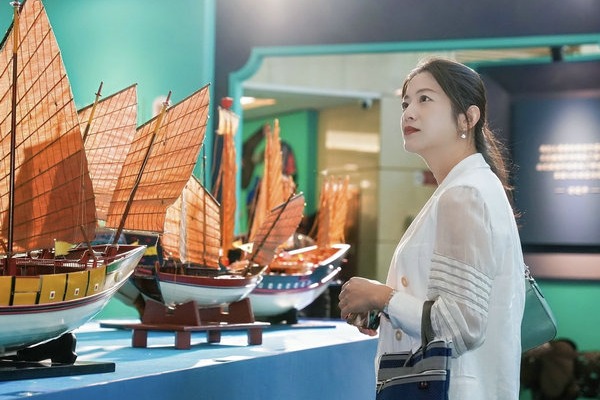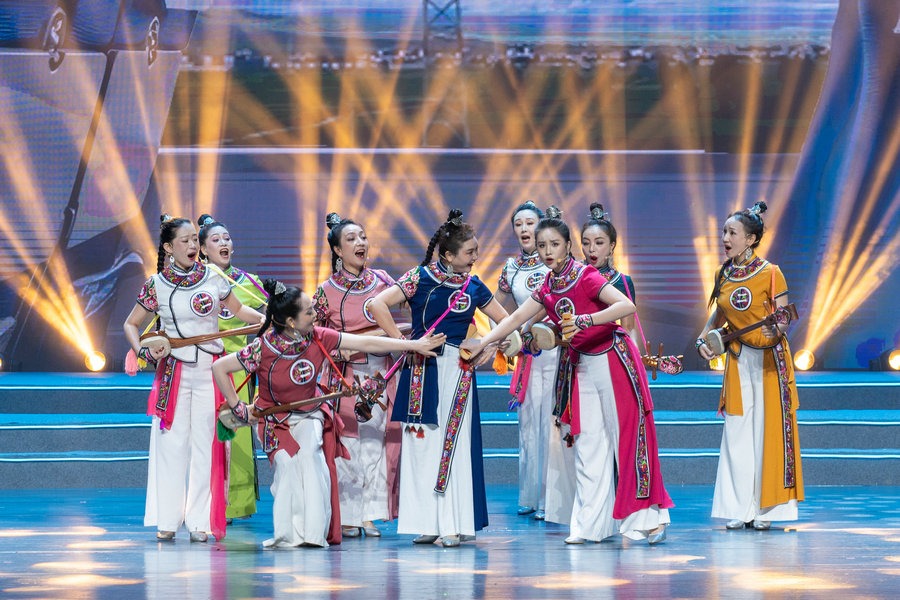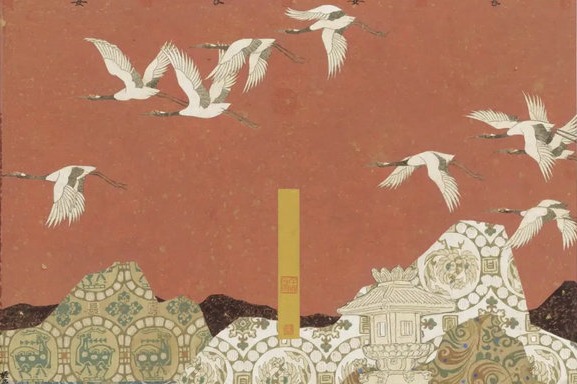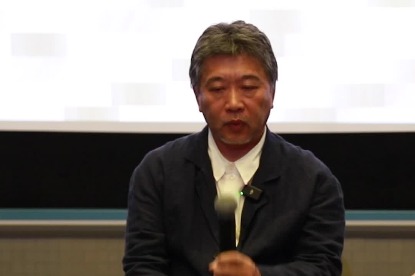Singing the praises of greater musical exchanges


Infinite and Beyond, a show that emphasizes the significance of musical exchanges between the Chinese mainland and Taiwan, has become increasing popular among audiences on both sides of the Taiwan Strait.
Regarding the history of pop music exchanges, Tang Hua, a researcher of the Graduate Institute for Taiwan Studies of Xiamen University, in Fujian province, notes that during the initial stages, the transmission of music was mostly one-way, with Taiwan being the main source and the mainland being the recipient.
"During the 1970s, the romantic ballads of Taiwan chanteuse Teresa Teng and some campus-themed songs from Taiwan were widely sung and heard on the streets and in the alleys of the Chinese mainland," she says.
In the '80s and '90s, the rapid development of pop music on the Chinese mainland led to a mutual exchange of influences between the respective pop music scenes. This was evident through the immense popularity enjoyed in Taiwan by Beijing-born singer-songwriter Cui Jian back then, as well as the entry of singers from Taiwan like Chyi Chin and Julie Su into the music scene of the Chinese mainland.
In the '90s, the forms of pop music exchanges between the two sides became increasingly diverse. For instance, the popularity of TV dramas helped to promote the spread of pop songs.
Additionally, there was an increased frequency of collaboration between musicians and music companies in the creation, indicating a shift towards cooperative development in the cross-Strait pop music industry.
Since 2005, the Chinese mainland has seen a surge of singing competitions and music variety shows, which has prompted record companies on both sides of the Taiwan Strait to discover and cultivate talented singers, leading to deeper exchanges.
Singers from the island are also invited to perform on the mainland to increase their exposure and build a larger fan base.
Over the recent years, the rise of short-video platforms has been enabling an even more dynamic exchange of pop music, and that of the mainland has had a more prominent influence on Taiwan, Tang says.
The pop songs that resonate with young people in Taiwan today are mainly those that are trending on short-video platforms.
Chen Li-nong, a 22-year-old singer from Taiwan, broke into the entertainment circle in the Chinese mainland in 2018 by attending one of the many musical reality shows on the Chinese mainland. He says that Wu Mei Zi Jiang (dark plum sauce), sung by mainland artist Li Ronghao, which is currently a hit on short-video platforms, is his favorite single at the moment.
Tang says that as many Taiwan pop songs are based on Chinese culture, it's easy for the songs to resonate with listeners from the Chinese mainland.
For these post-1980 and 1990 generations, who grew up in the heyday of Taiwan's pop music boom, the songs, which place a strong emphasis on self-expression, provide a helpful outlet for their emotional release. It's easy for youngsters to find something that resonates with them from the diverse selection of styles and genres which combine traditional Chinese elements with international influences.
"In the past decade, there has been a fundamental shift in cross-Strait pop cultural exchanges. Earlier on, Taiwan films and music deeply influenced the mainland, but now it is the mainland that has been exerting an influence on young people in Taiwan," Tang says.
Over that time, the Chinese mainland has produced a large number of high-quality TV dramas and films, including Empresses in the Palace, The Age of Awakening, A Lifelong Journey and The Knockout, which have gained wide popularity among the island's youth, becoming a hot topic of discussion, she says.
"Pop culture has become an important medium for breaking down barriers in cross-Strait youth exchanges.
"More young people in Taiwan are experiencing the multidimensional reality and progressive openness of the Chinese mainland through pop culture," says Tang.



















